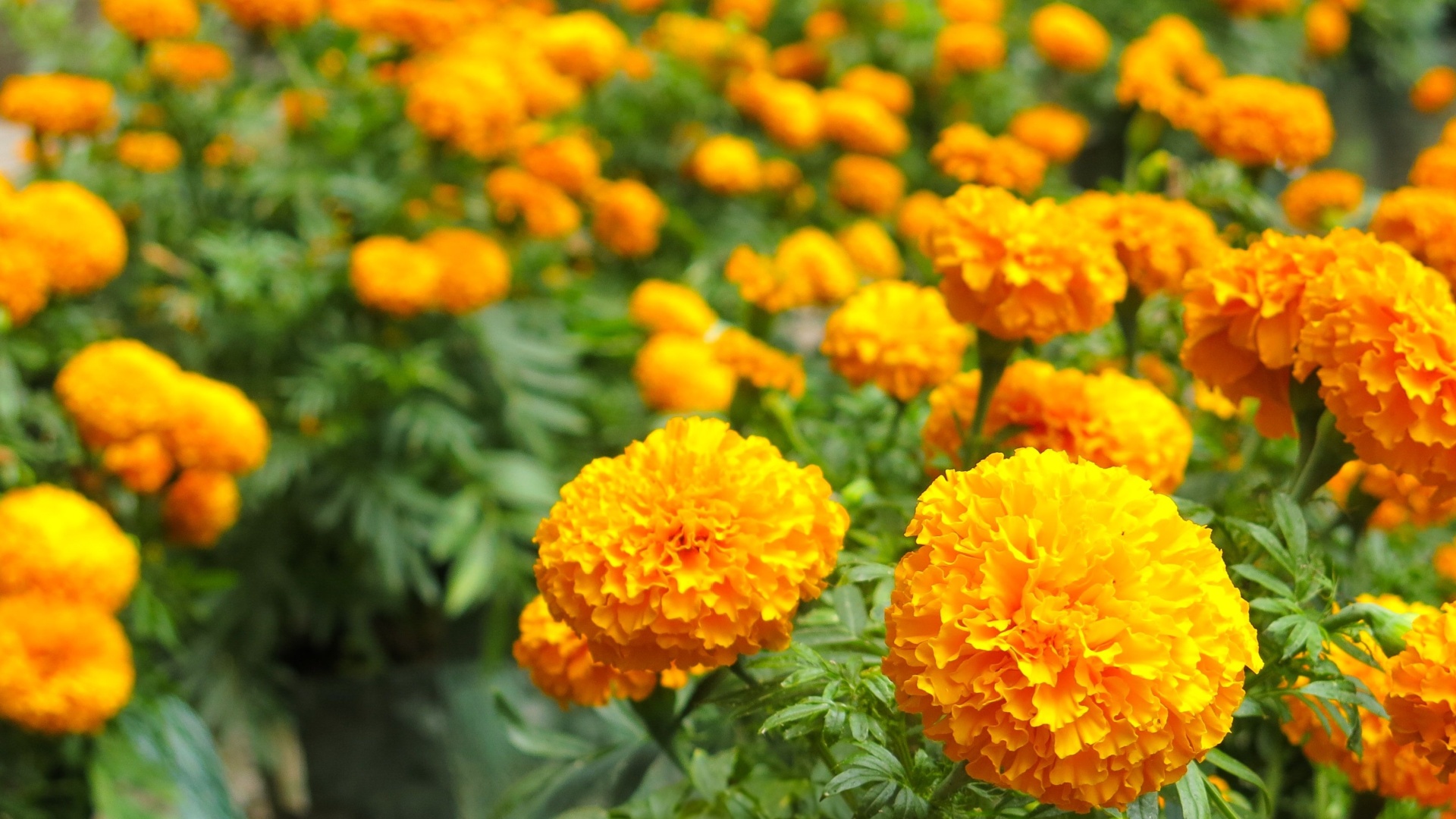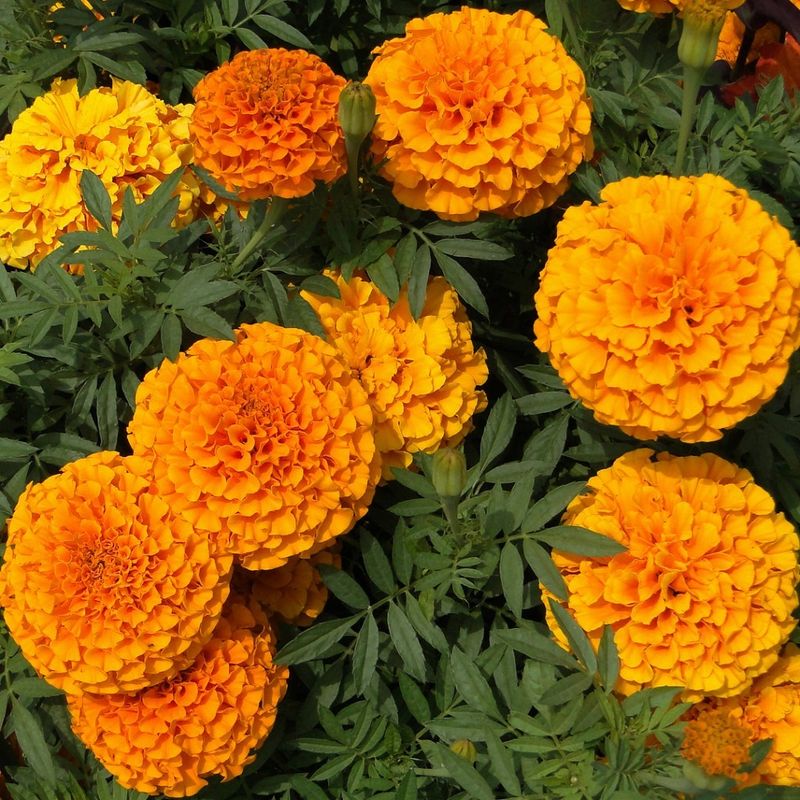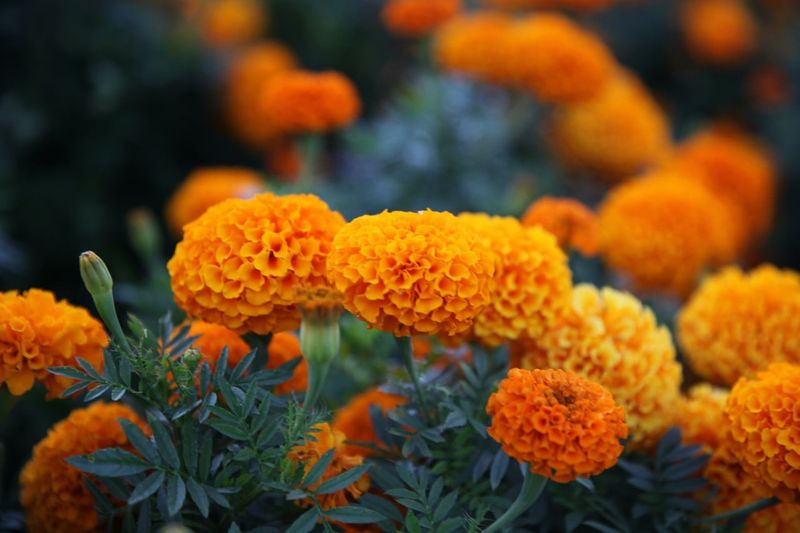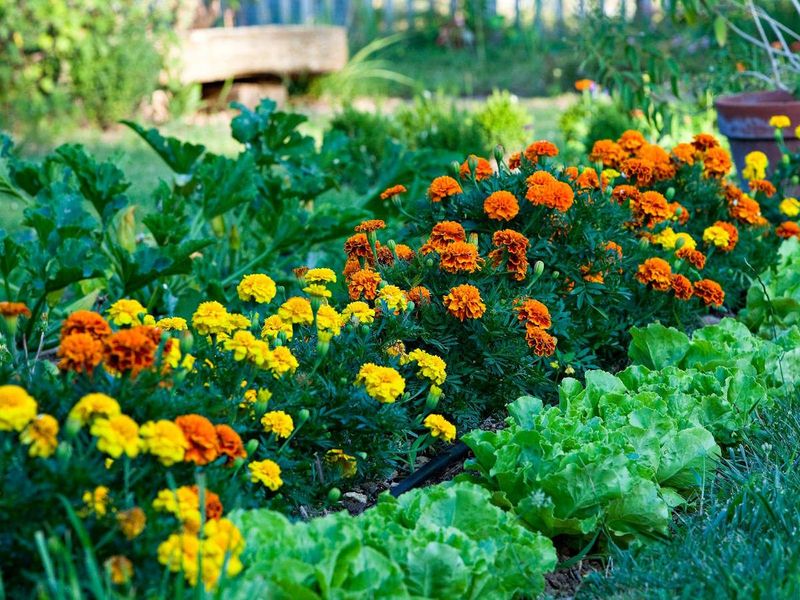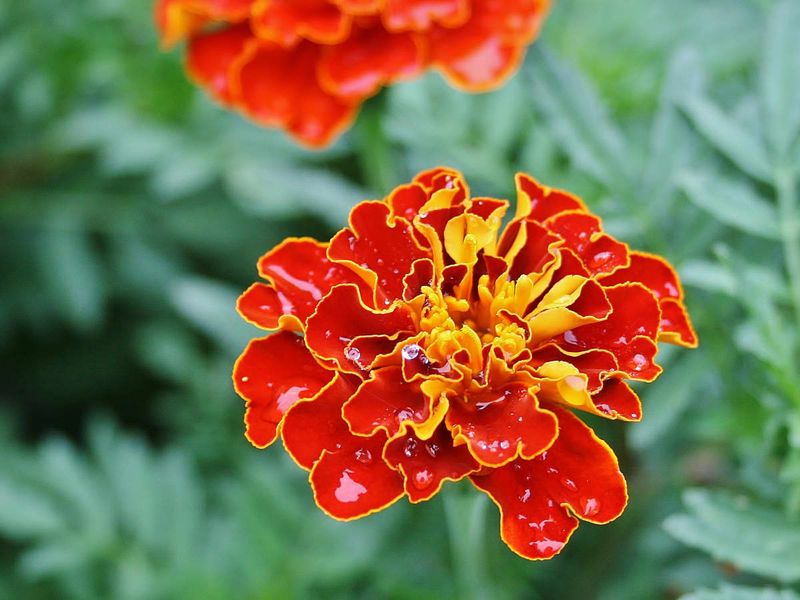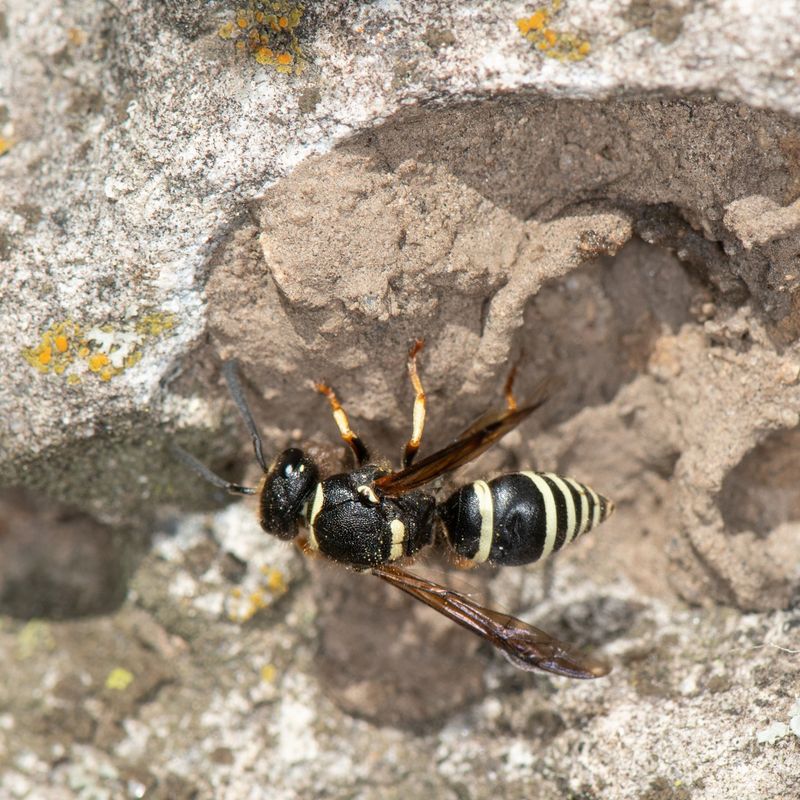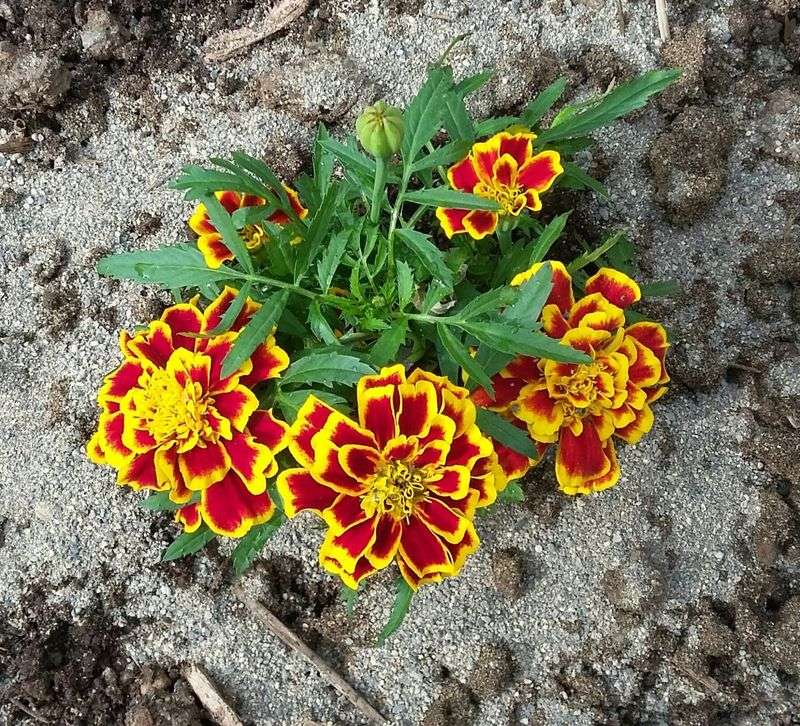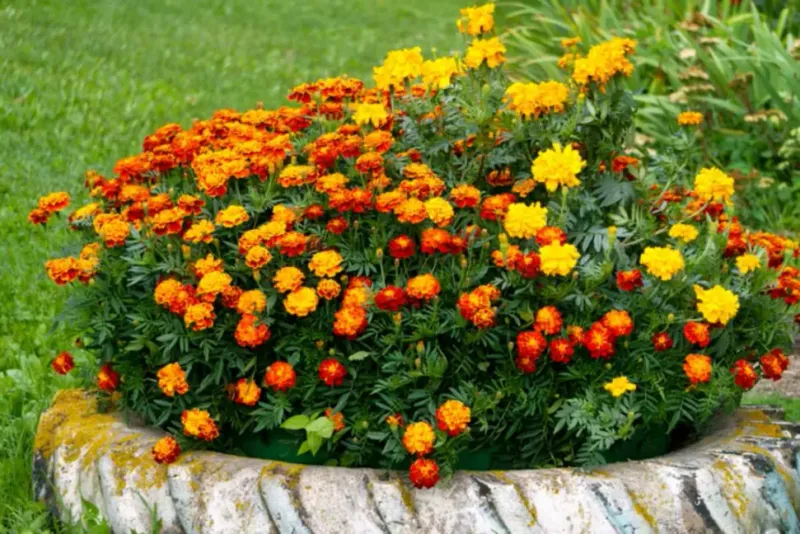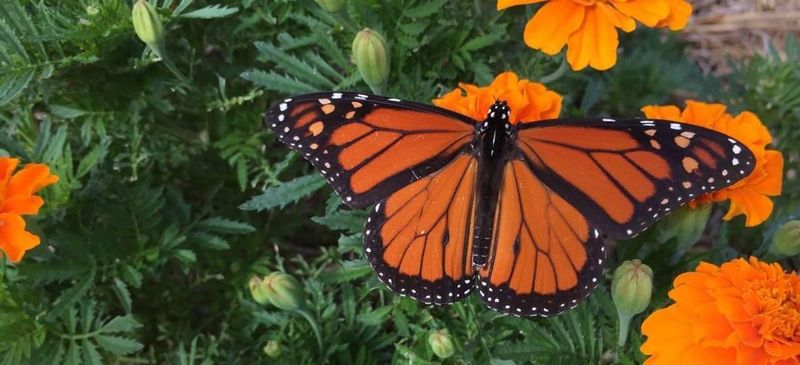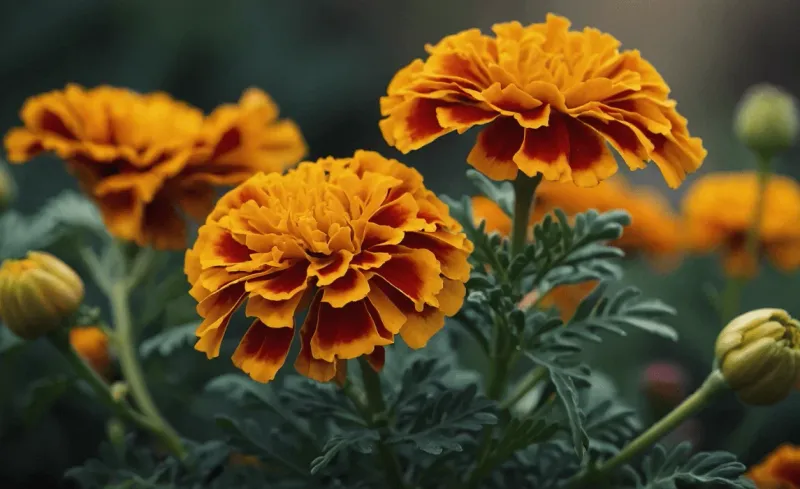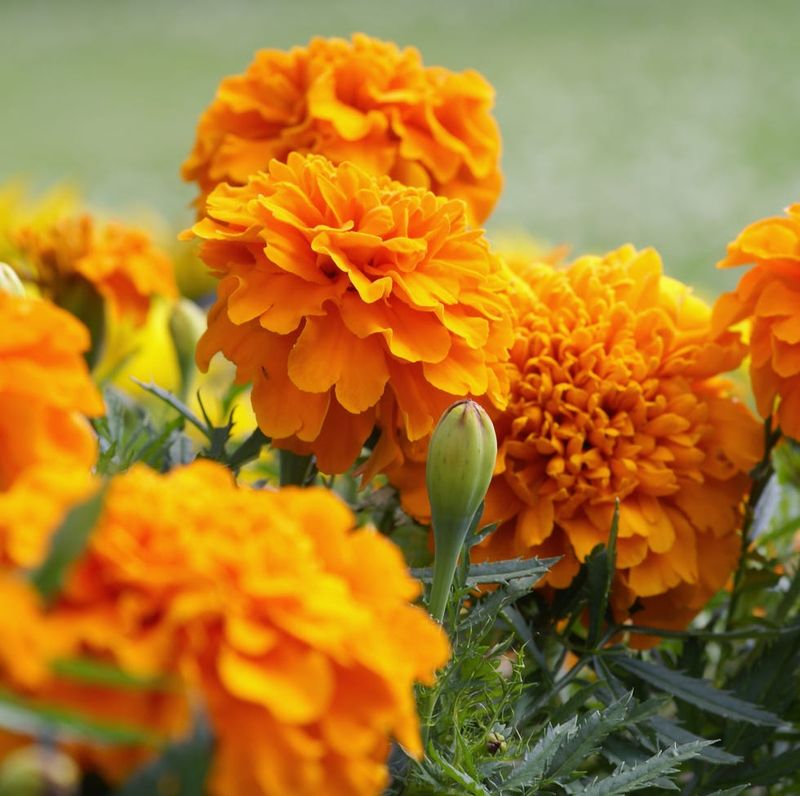Marigolds are garden staples—bright, bold, and famously easy to grow. But are they really secret weapons against wasps, or just another old wives’ tale? Gardeners have sworn by them for decades, but science has a few things to say, too.
Before you plant a border expecting a buzz-free zone, here are 10 must-know facts about marigolds and their wasp-repelling reputation.
1. The Strong Scent Factor
Marigolds release a distinctive smell that many insects find overwhelming. The sulfur compounds in marigold roots, stems, and flowers create this powerful aroma that might mask scents wasps are attracted to.
While humans might enjoy the earthy fragrance, wasps have much more sensitive smell receptors. The chemical compounds in marigolds, particularly terpenoids, can interfere with wasps’ ability to locate food sources they typically enjoy.
2. Scientific Evidence Is Limited
Research specifically examining marigolds’ effect on wasps remains sparse. Most evidence supporting this claim comes from gardeners’ personal experiences rather than controlled scientific studies.
Laboratory tests have confirmed marigolds repel certain insects like nematodes and mosquitoes, but wasp-specific research is lacking. Anecdotal success stories abound in gardening communities, yet scientists haven’t conclusively proven whether marigolds truly deter wasps or if other factors might explain observed results.
3. Companion Planting Strategy
Strategic placement of marigolds throughout your garden might enhance their wasp-deterring potential. Surrounding eating areas or outdoor gathering spaces with marigold borders creates a natural barrier.
Interplanting marigolds with fruits and flowering plants that typically attract wasps could reduce unwanted visits. Many gardeners report success planting marigolds near patios, picnic areas, and doorways where wasp encounters are most troublesome.
4. French vs. African Marigold Varieties
Not all marigolds offer equal protection against wasps. French marigolds (Tagetes patula) contain higher concentrations of the compounds believed to repel insects compared to their African cousins (Tagetes erecta).
French marigolds grow more compactly, making them ideal for container gardens and smaller spaces. African marigolds, while still aromatic, produce larger blooms and taller stalks that may distribute their scent more widely but with less intensity where it matters most.
5. Wasp Behavior Understanding
Knowing what attracts wasps helps understand whether marigolds can effectively deter them. Wasps primarily seek sweet foods, protein sources, and suitable nesting locations during different seasons.
During spring and early summer, wasps hunt protein-rich foods for developing larvae. Late summer sees them craving sugary substances as their colonies mature. Marigolds don’t address all these attractions, which explains why they might work better during certain times of year than others.
6. Practical Planting Tips
Maximizing marigolds’ potential requires proper planting techniques. Space plants 8-10 inches apart to allow adequate growth while creating a dense barrier of scent that wasps must navigate through.
Plant marigolds in sunny locations to encourage robust growth and stronger scent production. Regular deadheading encourages continuous blooming throughout the season. For best results, establish your marigold defenses early in spring before wasp populations expand.
7. Multiple-Defense Approach
Relying solely on marigolds might disappoint those seeking complete wasp protection. Combining marigolds with other natural deterrents creates a more effective defense system against these stinging insects.
Cucumber peels, clove-studded lemons, and essential oils like peppermint complement marigolds’ repellent properties. Commercial wasp traps placed strategically away from gathering areas can further reduce wasp populations while your marigolds work as a secondary barrier.
8. Beneficial Insects Attraction
Marigolds don’t just potentially repel wasps – they attract beneficial insects that help control garden pests. Ladybugs, hoverflies, and parasitic wasps (which don’t typically sting humans) flock to marigolds.
These helpful insects prey on aphids, caterpillars, and other garden pests. By planting marigolds, you’re creating a more balanced garden ecosystem that naturally manages pest populations, potentially reducing what attracts problematic wasps in the first place.
9. Year-Round Protection Strategies
Marigolds’ seasonal nature limits their year-round effectiveness. In colder climates, these annual flowers die off after frost, leaving gaps in your wasp defense system during cooler months.
Preserving dried marigold flowers can extend their usefulness into fall. Creating marigold-infused water sprays offers portable protection for outdoor events. For winter protection, grow potted marigolds indoors near windows and doorways where wasps might enter.
10. The Verdict: Helpful But Not Foolproof
Marigolds likely provide some wasp-deterring benefits but shouldn’t be considered a miracle solution. Their effectiveness varies based on wasp species, garden conditions, and competing attractions nearby.
For mild wasp concerns, marigolds offer an attractive, low-cost deterrent that brings multiple gardening benefits. Serious wasp problems or allergies require more comprehensive approaches. Consider marigolds one useful tool in your pest management toolkit rather than a complete solution.

